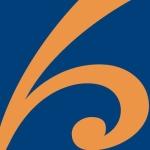Influenza A (H1N1) Swine Flu - Update Ninety-seven
Healthline continues to receive high volumes of calls with well over 2,000 calls answered yesterday (Sunday). In many cases a single call can see a Healthline nurse assessing two or three members of a family or household who are all sick. This means many calls are taking longer than usual. Healthline apologises for delays some callers are experiencing, and encourages people to continue holding. Staff are doing their best to assist people as soon as they can. The average waiting time on Saturday was four minutes thirty three seconds and on Sunday, seven minutes five seconds.
Healthline operates a centralised call centre and in addition, it uses a work-at-home arrangement which sees 75% of Healthline nurses working from home around New Zealand, around the clock - 24 hours a day, seven days a week. Healthline is being backed up by the Ministry's Wanganui call centre and additional nurses are being brought in to bolster the number of nurses available to take calls.
In addition, the Ministry of Health website gives detailed information on caring for someone at home with influenza. This is available at http://www.moh.govt.nz/influenza-a-h1n1
For most New Zealanders, swine flu will be a mild to moderate illness, but in some instances, the virus can cause more severe illness and in a few tragic instances, death.
"We know that people with some significant underlying medical conditions are at greater risk, however, it's important to remember that overseas experience has shown that some previously healthy people have also been seriously affected by swine flu," Dr McGrath said.
We all need to remain vigilant, and our advice remains the same:
- If you're sick, stay home and avoid crowded places
- Cover coughs and sneezes
- Wash and dry your hands often and thoroughly
- The majority of people who get influenza will recover well without needing medical help
- Seek medical advice by calling Healthline or your GP if someone with flu gets worse, particularly those with underlying medical conditions - for example if they have difficulty breathing, get drowsier or their temperature gets higher and does not come down after taking medication such as paracetamol or ibuprofen
Healthline has registered nurses answering calls 24 hours a day, seven days a week - call 0800 611 116 or your own doctor.
Latest Numbers
The cumulative total of confirmed cases in New Zealand is 1059 up from 961 yesterday. The number of deaths associated with influenza A (H1N1) is three. It's important to note that the actual number of cases of the new influenza A (H1N1) will be significantly higher, as only a small proportion of people with symptoms are now being tested. This is because for most people it's a mild illness and they will recover readily at home without needing medical treatment.
Probable cases are no longer being reported. From tomorrow the Ministry of Health plans to provide numbers of the people who are hospitalised and in intensive care units due to swine flu. These figures will be updated weekly.
The cumulative total of confirmed cases by region are:
Northland (30), Auckland (249), Waikato (54), Bay of Plenty/Lakes (32), Gisborne (2), Hawkes Bay (88), Taranaki (4), Wanganui/Palmerston North (22), Wellington (301), Nelson/Marlborough (22), Canterbury (238), Otago/Southland (17).
Australian situation
As at noon on Sunday 5 July, Australia had 5298 confirmed cases. At that time the total number of Australian deaths associated with the new influenza A (H1N1) was 10.
International Update from the World Health Organization
WHO figures were last updated on 3 July 2009 at 09:00 GMT, where 89,921 cases of Novel Influenza A (H1N1) 09 infection have been reported internationally, including 382 deaths.
The breakdown of the number of laboratory-confirmed cases by country is given in the following table:
http://www.who.int/csr/don/2009_07_03/en/index.html
